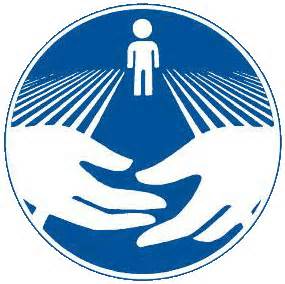Soon after Jax died I dove into the Internet for comfort. A few people told me about The Compassionate Friends, a national organization aimed at helping parents and grandparents grieve the death of a child naturally and without isolation to heal and find hope again. One evening my wife came to check on me in the office and found my red, puffy face soaked with tears. I joined a chat room at the website of The Compassionate Friends and explained to strangers for the first time Jax’s death.
“Why would you even want to do that to yourself?” she asked with a compassionate smirk. I laughed back. “I don’t know,” I answered.
That same night I found a section of the site for “To the Newly Bereaved.” I read it and realized I wasn’t alone. My wife dealt with everything differently than I did. She didn’t want to deal with any of it. So the ability to identify with countless others that already experienced and came through this hell was a big deal for me.
The “To the Newly Bereaved” lists emotions and feelings that parents, grandparents and siblings might feel shortly after the loss of a child. It’s divided into psychological, emotional, physical and family/social categories. If you know of anyone suffering through grief, this may be of help to them. They’re not alone. Below I’ve listed what I remember feeling and struggling with, and often still do.
Psychological
- You wonder how someone can feel this much pain and survive.
- Thoughts of suicide briefly enter your mind. You tell yourself you want to die—and yet you want to live to take care of your family and honor your child’s memory.
- You are no longer afraid of death as each day that passes puts you one day closer to being with your child.
- Thoughts of “what ifs” enter your mind as you play out scenarios that you believe would have saved your child.
- Your memory has suddenly become clouded. You’re shrouded in forgetfulness. You’ll be driving down the road and not know where you are or remember where you’re going. As you walk, you may find yourself involved in “little accidents” because you’re in a haze.
- You find there’s a videotape that constantly plays in an endless loop in your mind, running through what happened.
Emotional
- You rail against the injustice of not being allowed the choice to die instead of your child.
- You yearn to have five minutes, an hour, a day back with your child so you can tell your child of your love or thoughts left unsaid.
- Guilt becomes a powerful companion as you blame yourself for the death of your child. Rationally you know that you were not to blame—you most certainly would have saved your child if you’d been given the chance.
Physical
- You no longer care about your health and taking care of yourself—it just doesn’t seem that important anymore.
- The tears come when you least expect them.
- Your appetite is either gone or you find yourself overeating.
Family & Social
- Things you liked to do which seemed so important before now seem meaningless.
- If you have surviving children, you find yourself suddenly overprotective, not wanting to allow them out of your sight. Yet you feel like a bad parent because it’s so difficult to focus on their needs when you’re hurting so bad yourself.
- Others say you’ll someday find “closure,” not understanding that closure never applies when it is the death of your child.
One of my goals of this blog is for it to be a resource for the newly bereaved. My vision is to create a section that parents can click on and find anything and everything to help them realize that they’re not alone, that they have the strength to get through this and to keep breathing as the sun will rise tomorrow. A link to “To the Newly Bereaved” will be the first thing someone will read in that section, when I can get that up.

